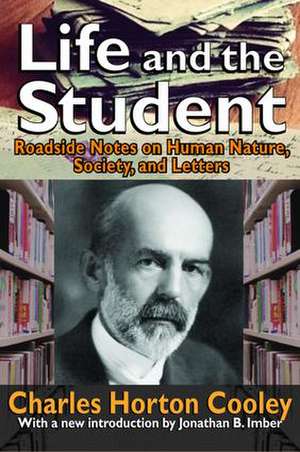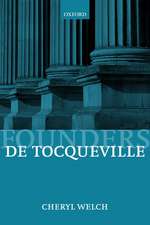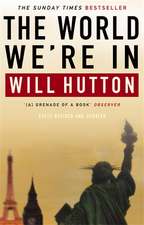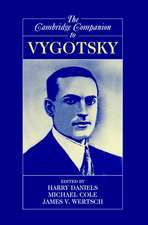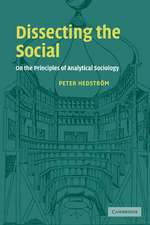Life and the Student: Roadside Notes on Human Nature, Society, and Letters
Editat de Carl Friedrich, Charles Horton Cooleyen Limba Engleză Hardback – 6 oct 2017
There is no formal structure to the book, except the literary sense that organizes these thoughts and observations about life. It is impossible to categorize these widely ranging commentaries. They include discussions of the automobile, the impressionable nature of young people, the claim that the question of racial superiority is still unresolved, his belief that eugenists are inconsistent in their views, and more.
Cooley's work sought to emphasize the connection between society and the individual. He believed that the two could only be understood in relationship to each other. While researching the effects of social responses and social participation, he created the concept of the "looking-glass self," which is the theory that a person's sense of self grows out of interpersonal interactions and the perceptions of others. Cooley also showed that social life and the relationship between groups and communities stems from mental phenomena.
| Toate formatele și edițiile | Preț | Express |
|---|---|---|
| Paperback (1) | 406.63 lei 6-8 săpt. | |
| Taylor & Francis – 28 feb 2015 | 406.63 lei 6-8 săpt. | |
| Hardback (1) | 1000.27 lei 6-8 săpt. | |
| Taylor & Francis – 6 oct 2017 | 1000.27 lei 6-8 săpt. |
Preț: 1000.27 lei
Preț vechi: 1219.84 lei
-18% Nou
Puncte Express: 1500
Preț estimativ în valută:
191.40€ • 208.56$ • 161.28£
191.40€ • 208.56$ • 161.28£
Carte tipărită la comandă
Livrare economică 23 aprilie-07 mai
Preluare comenzi: 021 569.72.76
Specificații
ISBN-13: 9781138527225
ISBN-10: 113852722X
Pagini: 164
Dimensiuni: 152 x 229 x 11 mm
Greutate: 0.45 kg
Ediția:1
Editura: Taylor & Francis
Colecția Routledge
Locul publicării:Oxford, United Kingdom
ISBN-10: 113852722X
Pagini: 164
Dimensiuni: 152 x 229 x 11 mm
Greutate: 0.45 kg
Ediția:1
Editura: Taylor & Francis
Colecția Routledge
Locul publicării:Oxford, United Kingdom
Cuprins
INTRODUCTION: THE VOCATION OF CHARLES HORTON COOLEY
by Jonathan B. Imber
PART ONE
OUR TIME
Automobiles � Strategy of the Youth Movement � Confusion and
Continuity � Shaky Bridges � "Our Complex Life" � Radicalism
and Reaction � The Conservatism of Intelligence � Education and
Religion � Nationality � American Patriotism � Traits of Democracy
� Immigrants � Americanization � Race � Anti-Semitism �
Eugenists � Team-Work � Social Mechanics � Classes and Culture
� The Upper Class � Class Magazines � The Handworking Classes
� Class-Conflict �Rural Physiognomy � Progress?
PART TWO
READING AND WRITING
Books and Persons � Character � The Book and the Sentence � Form
� Freedom in Books � Diary Books � Literary Selves � Egotism �
Selves and Bodies � Struggle � Tranquillity � Jealousy � Criticism �
Self-Criticism � Residual Satisfactions � Magazines � Goethe � Dante
� Pascal � Bacon � Montesquieu and de Tocqueville � La Bruyere
� Samuel Butler � Quiet in Books � Thoreau � Thomas a Kempis
PART THREE
THINKING
Originality � System and Spontaneity � How to Grow Ideas � Dried
Truth � Motives � Milieu � Controversy. � The Subservience of
Contradiction � Notes from Practice � Children's Philosophy
PART FOUR
ART, SCIENCE AND SOCIOLOGY
Building � The Glamour of Art � The Artist's Public � Heritage � Art
and Conduct � An Art of Society? � Art and Science � The Fallibility
of Scientific Groups � Skirmishes on the Border � Pseudo-Science
� Perception � Diagrams and Statistics � Traits of Sociology � Two
Ways of Organizing Life � The Organization of Freedom � "Heredity
or Environment."
PART FIVE
ACADEMIC
A Soft Job � An Art? � The Day's Work � The Eloquent Man � Formalism
� Heritage and Spontaneity � The Passing Current � The
Chair � American Universities � The Campus � Scholars and Administrators
� Genius on the Faculty � Academic Freedom � The
Academic Outlook � Outing
PART SIX
HUMAN NATURE
Is Human Nature Selfish � Self-Expression � The Looking-Glass Self
� Possessions � The Material "I" � On a Remark of Dr. Holmes � On
Certain Sentiments � The "Gregarious Instinct " � Plans � Anticipation
� The End of the World � The Transitive Attitude � Posthumous
Fame � Might and Right � Prudence � Worry � Distraction � Mental
Management � Compensation
PART SEVEN
LARGER LIFE
Faith � The Mind of the Soldier � The Lot of the Individual � As to
the Shortness of Life � Evolution � Expansion � Solidarity � Perplexity
� The Incredibility of Institutions � Past, Present and Future �
Ideas about God � God and Oneself � Seeking God � Another Life?
� Varieties of Idealism � Can Christianity Survive? � The Golden
Rule � Group Sins � Social Religion � Christianity and Class � The
Church � Salvation
INDEX
by Jonathan B. Imber
PART ONE
OUR TIME
Automobiles � Strategy of the Youth Movement � Confusion and
Continuity � Shaky Bridges � "Our Complex Life" � Radicalism
and Reaction � The Conservatism of Intelligence � Education and
Religion � Nationality � American Patriotism � Traits of Democracy
� Immigrants � Americanization � Race � Anti-Semitism �
Eugenists � Team-Work � Social Mechanics � Classes and Culture
� The Upper Class � Class Magazines � The Handworking Classes
� Class-Conflict �Rural Physiognomy � Progress?
PART TWO
READING AND WRITING
Books and Persons � Character � The Book and the Sentence � Form
� Freedom in Books � Diary Books � Literary Selves � Egotism �
Selves and Bodies � Struggle � Tranquillity � Jealousy � Criticism �
Self-Criticism � Residual Satisfactions � Magazines � Goethe � Dante
� Pascal � Bacon � Montesquieu and de Tocqueville � La Bruyere
� Samuel Butler � Quiet in Books � Thoreau � Thomas a Kempis
PART THREE
THINKING
Originality � System and Spontaneity � How to Grow Ideas � Dried
Truth � Motives � Milieu � Controversy. � The Subservience of
Contradiction � Notes from Practice � Children's Philosophy
PART FOUR
ART, SCIENCE AND SOCIOLOGY
Building � The Glamour of Art � The Artist's Public � Heritage � Art
and Conduct � An Art of Society? � Art and Science � The Fallibility
of Scientific Groups � Skirmishes on the Border � Pseudo-Science
� Perception � Diagrams and Statistics � Traits of Sociology � Two
Ways of Organizing Life � The Organization of Freedom � "Heredity
or Environment."
PART FIVE
ACADEMIC
A Soft Job � An Art? � The Day's Work � The Eloquent Man � Formalism
� Heritage and Spontaneity � The Passing Current � The
Chair � American Universities � The Campus � Scholars and Administrators
� Genius on the Faculty � Academic Freedom � The
Academic Outlook � Outing
PART SIX
HUMAN NATURE
Is Human Nature Selfish � Self-Expression � The Looking-Glass Self
� Possessions � The Material "I" � On a Remark of Dr. Holmes � On
Certain Sentiments � The "Gregarious Instinct " � Plans � Anticipation
� The End of the World � The Transitive Attitude � Posthumous
Fame � Might and Right � Prudence � Worry � Distraction � Mental
Management � Compensation
PART SEVEN
LARGER LIFE
Faith � The Mind of the Soldier � The Lot of the Individual � As to
the Shortness of Life � Evolution � Expansion � Solidarity � Perplexity
� The Incredibility of Institutions � Past, Present and Future �
Ideas about God � God and Oneself � Seeking God � Another Life?
� Varieties of Idealism � Can Christianity Survive? � The Golden
Rule � Group Sins � Social Religion � Christianity and Class � The
Church � Salvation
INDEX
Descriere
Life and the Student (1927), with a new introduction by Jonathan B
